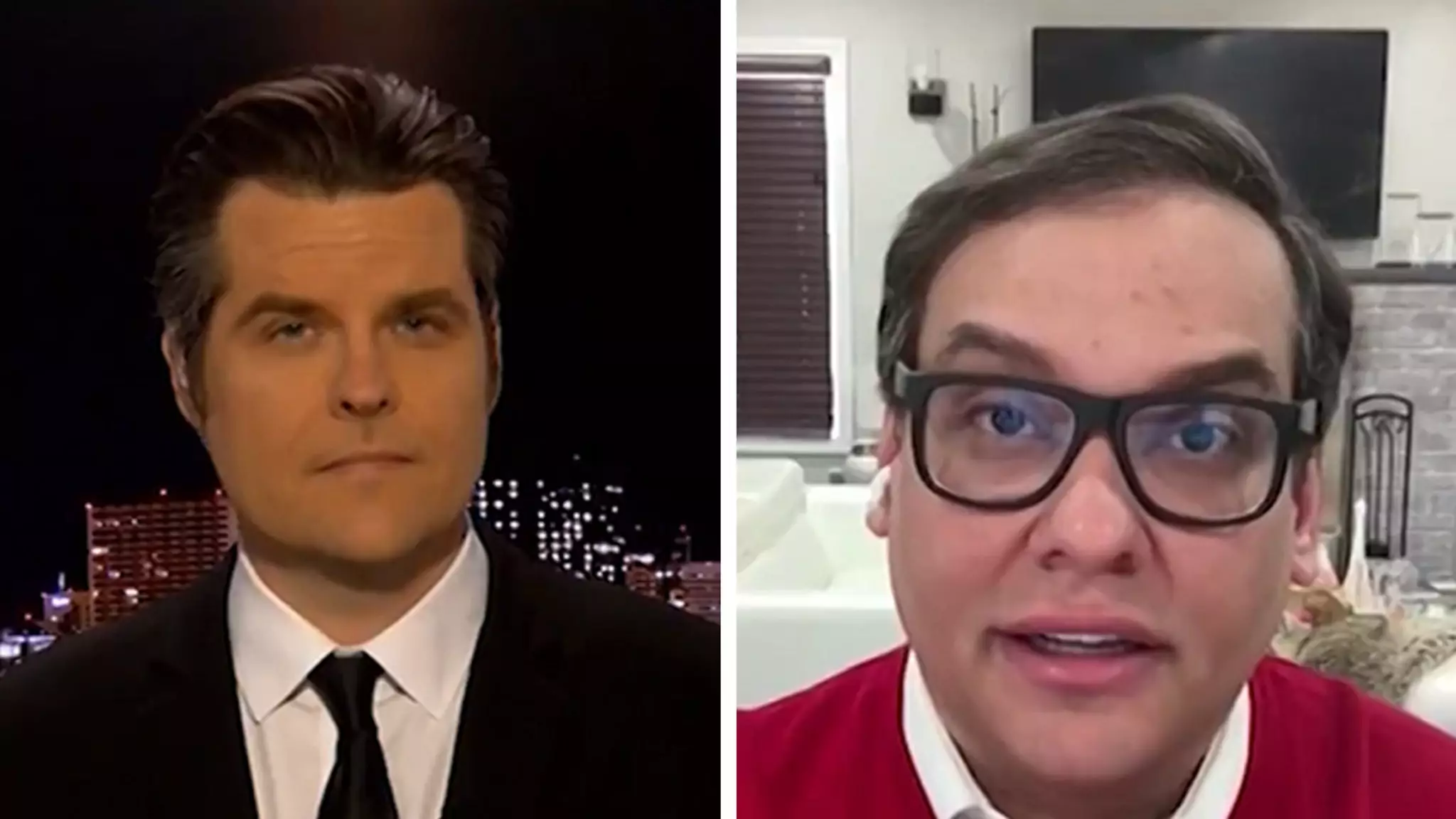George Santos, the former congressman from New York embroiled in controversy, has made headlines once again by expressing his preference for solitary confinement if sentenced to prison. When Santos appeared on “The Matt Gaetz Show,” he revealed his intention to spend his potential incarceration away from the general population, primarily citing safety concerns due to his political background and past criticisms of gang affiliations. In a society increasingly focused on rehabilitation, Santos’s desire for isolation prompts a deeper examination of the implications of his choices.
A Troubling Legacy of Lies
Santos’s rapid ascent to Congress and subsequent fall from grace have been nothing short of extraordinary—yet not in the ways one would hope for a public servant. Elected in 2022, he was soon dismissed from office amid revelations that much of his campaign biography was fabricated, leading to charges of wire fraud and identity theft. His plea deal, resulting in the admission of guilt for only two of the nearly twenty accusations against him, highlights a troubling pattern not just of legal issues, but of ethical failings that resonate on both personal and political levels.
Brushing with Danger: The Reality of Political Retaliation
In a striking moment during his appearance, Santos acknowledged the real threat posed by incarcerated gang members like MS-13, with whom he had formerly engaged in heated rhetoric while in office. This acknowledgment illuminates a peculiar paradox: a former member of Congress, feared for his outspoken views against gangs, now perceives himself as a target within the very environment he once criticized. This dynamic raises questions about the broader implications of political rhetoric and the safety that comes with it. While it seems logical for individuals in similar circumstances to seek protection, it also suggests profound issues about societal trust and the expectations we have of our elected officials.
From Deputy to Villain: The Witch Hunt Narrative
Santos also took the opportunity to frame his current situation as a “witch hunt,” strategically deflecting blame and attempting to align himself with a narrative increasingly propagated by various political figures. By invoking themes of persecution, Santos aims to cultivate sympathy among some supporters, potentially leveraging political grievances as a means of evading accountability. This tactic not only underscores the polarization within modern politics but raises important concerns about the potential dangers of victimhood narratives being misused by individuals whose actions warrant scrutiny.
The Federal Bureau of Prisons Perspective
According to a spokesperson from the Federal Bureau of Prisons, various factors come into play when considering requests for protective custody or solitary confinement. These elements include security needs and inmates’ medical or programming requirements. While Santos may believe he qualifies for isolation due to his background, it prompts more extensive reflections on how the justice system accommodates individuals based on their past roles. The disparities in treatment between the general population and those deemed ‘at risk’ remain a critical issue in discussions surrounding prison reform and inmate rights.
In the end, Santos’s anticipated sentencing poses more questions than answers about the intersection of politics, crime, and personal accountability in contemporary society.

